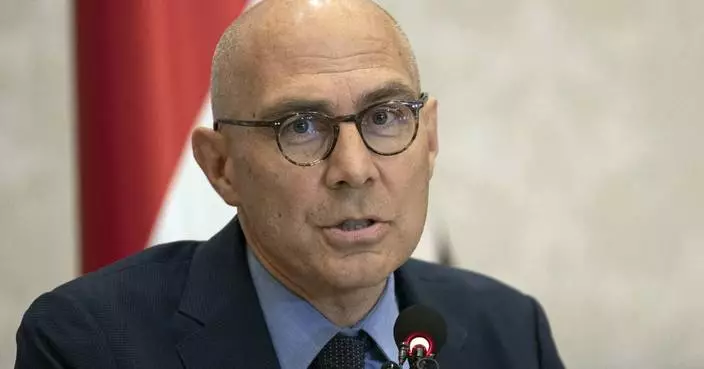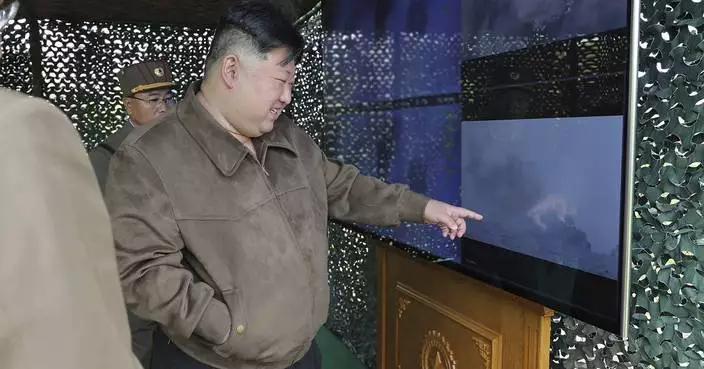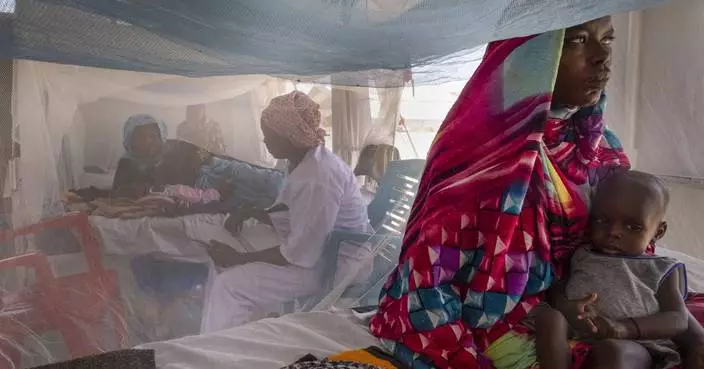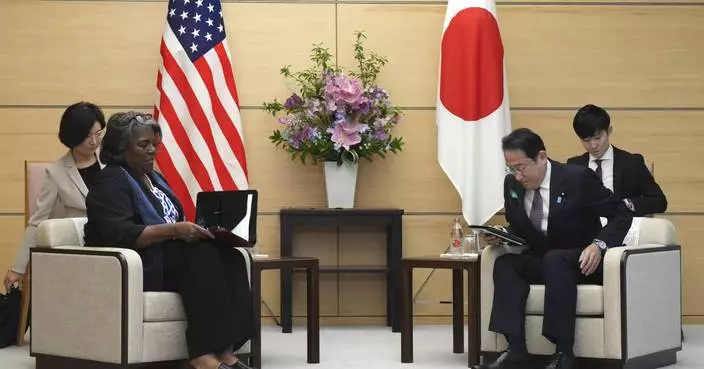Venezuela won a contested election for a seat on the U.N. Human Rights Council on Thursday despite a campaign by over 50 organizations and many countries opposed to Nicolas Maduro's government and its rights record.
There was scattered applause in the General Assembly chamber when its president announced the results of the voting for two Latin American seats. Brazil topped the ballot with 153 votes followed by Venezuela with 105 votes and late entry Costa Rica with 96 votes.
Venezuela's Foreign Minister Jorge Arreaza called the vote "a victory" that followed "a fierce and brutal campaign by the United States ... and its subordinate nations."
The Trump administration has recognized opposition leader Juan Guaidó as Venezuela's interim president and U.S. Ambassador Kelly Craft called the placing of President Nicolás Maduro's government on the council "an embarrassment to the United Nations and a tragedy for the people of Venezuela."
"That one of the world's worst human-rights abusers would be granted a seat on a body that is supposed to defend human rights is utterly appalling," Craft said in a statement after the vote.
Philippe Bolopion, Human Rights Watch's deputy director for global advocacy, called Venezuela's election "undeserved" and "a slap in the face to the country's countless victims who've been tortured and murdered by government forces, as well as the millions who have fled largely because of a humanitarian emergency the government unleashed."
The 193-member world body elected 14 members to the 47-member Human Rights Council for three-year terms starting Jan. 1. Under its rules, seats are allocated to regions to ensure geographical representation.
In other contested races, Iraq lost out in the Asian group contest for four seats to Japan, South Korea, Indonesia and the Marshall Islands, and Moldova lost in the Eastern Europe group race for two seats to Armenia and Poland.
The Africa region had four countries on the ballot —Benin, Libya, Mauritania and Sudan — for four seats. But diplomats said the regional group did a last-minute switch, putting Namibia on the ballot instead of Benin to include a nation from southern Africa, so Namibia, Libya, Mauritania and Sudan were elected.
There was no competition for the two Western group seats and Germany and the Netherlands were overwhelmingly elected.
The Geneva-based Human Rights Council can spotlight abuses and has special monitors watching certain countries and issues. It also periodically reviews human rights in every U.N. member country.
Created in 2006 to replace a commission discredited because of some members' sorry rights records, the new council soon came to face similar criticism.
The United States left the council partly because it saw the group as a forum for hypocrisy about human rights, though also because Washington says the council is anti-Israel.
Craft, the U.S. ambassador, said Thursday's vote "provides ironclad proof that the Human Rights Council is broken and reinforces why the United States withdrew."
Israel's U.N. Ambassador Danny Danon said in a statement immediately after Thursday's results were announced that: "The Human Rights Council continues to abandon human rights and is now in the business of protecting dictators and war crimes."
"In Venezuela, a dictator starves his people, and in Libya there are camps that torture African migrants," Danon said.
Venezuelan officials regularly reject any criticism of the country's human rights record.
When the U.N.'s high commissioner for human rights, Michelle Bachelet, chronicled cases of torture, sexual abuse and extrajudicial killings in the country, Deputy Foreign Minister William Castillo said her report "does not reflect the reality in our country."
He called it a "biased vision" of Venezuela and demanded it be "corrected."
Maduro's Attorney General Tarek William Saab on Thursday also announced the release of 24 people he called "political prisoners" in a gesture stemming from a new round of negotiations with minority parties that don't include Guaidó.
However, Saab did not immediately release the prisoners' names.
Human Rights Watch's Bolopion said the U.N. Rights Council should continue to scrutinize the Maduro government's "abuses," even with Venezuela at the table, and hold those responsible to account.
"The UN General Assembly should recognize that electing serial rights abusers like Venezuela betrays the fundamental principles it set out when it created the Human Rights Council," he said.
Before the vote, Human Rights Watch also criticized Brazil's President Jair Bolsonaro for embracing "rhetoric hostile to human rights norms" and for giving "a green light to criminal networks destroying the Amazon rainforest."
It criticized Poland for systematically eroding "the independence and effective functioning of its judiciary," Indonesia for rising "religious intolerance" and Mauritania for using laws on criminal defamation, spreading "false information and blasphemy to prosecute human rights activists, bloggers and political dissidents."
And it urged Sudan's new transitional government to "set an example on human rights promotion by taking concrete steps toward accountability and reforms."
Associated Press journalist Scott Smith contributed to this report from Caracas, Venezuela.
WASHINGTON (AP) — Lawyers for an American believed to be held by the Taliban for nearly two years are asking a United Nations human rights investigator to intervene, citing what they say is cruel and inhumane treatment.
Ryan Corbett was abducted Aug. 10, 2022, after returning to Afghanistan, where he and his family had been living at the time of the collapse of the U.S.-based government there a year earlier. He arrived on a valid 12-month visa to pay and train staff as part of a business venture he led aimed at promoting Afghanistan's private sector through consulting services and lending.
Corbett has since been shuttled between multiple prisons, though his lawyers say he has not been seen since last December by anyone other than the people with whom he was detained.
In a petition sent Thursday, lawyers for Corbett say that he's been threatened with physical violence and torture and has been malnourished and deprived of medical care. He's been held in solitary confinement, including in a basement cell with almost no sunlight and exercise, and his physical and mental health have significantly deteriorated, the lawyers say.
Corbett has been able to speak with his family by phone five times since his arrest, including last month. His family has not been able to see him — his only visits have been two check-ins from a third-party government — and their characterizations of his mistreatment are based on accounts from recently released prisoners who were with him and his openly dispirited tone in conversations.
“During Mr. Corbett’s most recent call with his wife and children, Mr. Corbett indicated that the mental torture and anguish have caused him to lose all hope,” said the petition, signed by the Corbett family attorneys, Ryan Fayhee and Kate Gibson.
The petition is addressed to Alice Edwards, an independent human rights investigator and the special rapporteur for torture in the Office of the High Commissioner for Human Rights at the U.N. It asks Edwards, who was appointed by the U.N. Human Rights Council, to “urgently reach out to the Taliban to secure Mr. Corbett’s immediate release and freedom from torture, as guaranteed by international law.”
"This situation is just dragging on, and I’m increasingly concerned and taking steps that I hope will make a difference and help the situation — just increasingly concerned and panicking about Ryan’s deteriorating health and physical and mental health," Corbett's wife, Anna, said in an interview. “And that was leading me to take this next step.”
The U.S. government is separately working to get Corbett home and has designated him as wrongfully detained. A State Department spokesman told reporters last month that officials had continually pressed for Corbett's release and were “using every lever we can to try to bring Ryan and these other wrongfully detained Americans home from Afghanistan."
A spokesperson for the Interior Ministry in Afghanistan said this week that it had no knowledge of Corbett's case.
Corbett, of Dansville, New York, first visited Afghanistan in 2006 and relocated there with his family in 2010, supervising several non-governmental organizations.
The family was forced to leave Afghanistan in August 2021 when the Taliban captured Kabul, but he returned the following January so that he could renew his business visa. Given the instability on the ground, the family discussed the trip and “we were all pretty nervous,” Corbett's wife said.
But after that first uneventful trip, he returned to the country in August 2022 to train and pay his staff and resume a business venture that involved consulting services, microfinance lending and evaluating international development projects.
While on a trip to the northern Jawzjan province, Corbett and a Western colleague were confronted by armed members of the Taliban and were taken first to a police station and later to an underground prison.
Anna Corbett said that when she learned her husband had been taken to a police station, she got “really scared” but that he was optimistic the situation would be quickly resolved.
That, however, did not happen, and Anna Corbett, who has three teenage children and makes regular trips to Washington, said she's trying to advocate as forcefully as she can while not letting “anxiety take over.”
“I feel like it’s the uncertainty of all of it that just is so difficult because you just don’t know what’s going to come at you — what call, what news," she said. "And I’m worried about Ryan and the effect of the trauma on him and then also on my kids, just what they’re experiencing. I've tried to protect them the best I could, but this is so difficult.”
Associated Press writer Riazat Butt in Kabul, Afghanistan, contributed to this report.
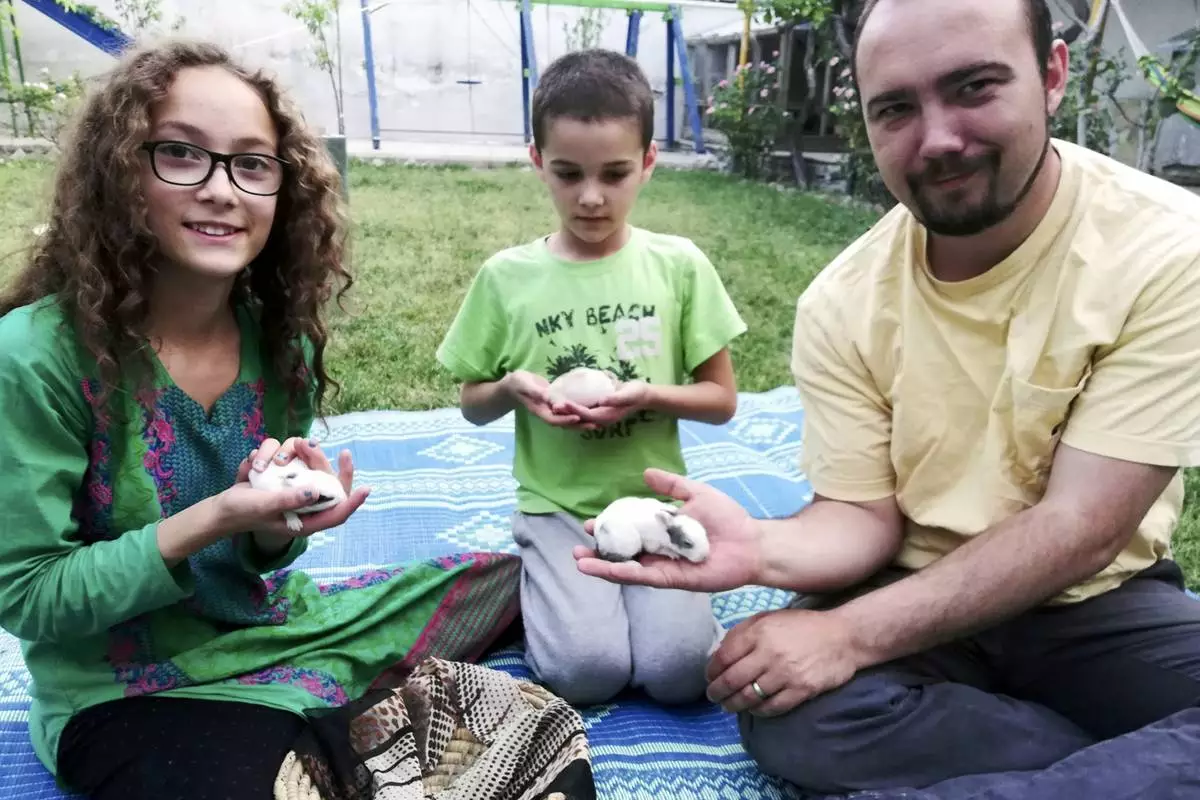
This family photo shows Ryan Corbett holding rabbits with his daughter Miriam and son Caleb in Kabul, Afghanistan in 2020. Lawyers for Corbett, believed held by the Taliban for nearly two years, are asking a United Nations human rights investigator to intervene, citing what they say is cruel and inhumane treatment. Corbett was abducted on August 10, 2022 after returning to Afghanistan, where he and his family had been living at the time of the collapse of the U.S.-based government there one year earlier, on a valid 12-month business visa to pay and train staff. (AP Photo/Anna Corbett)





